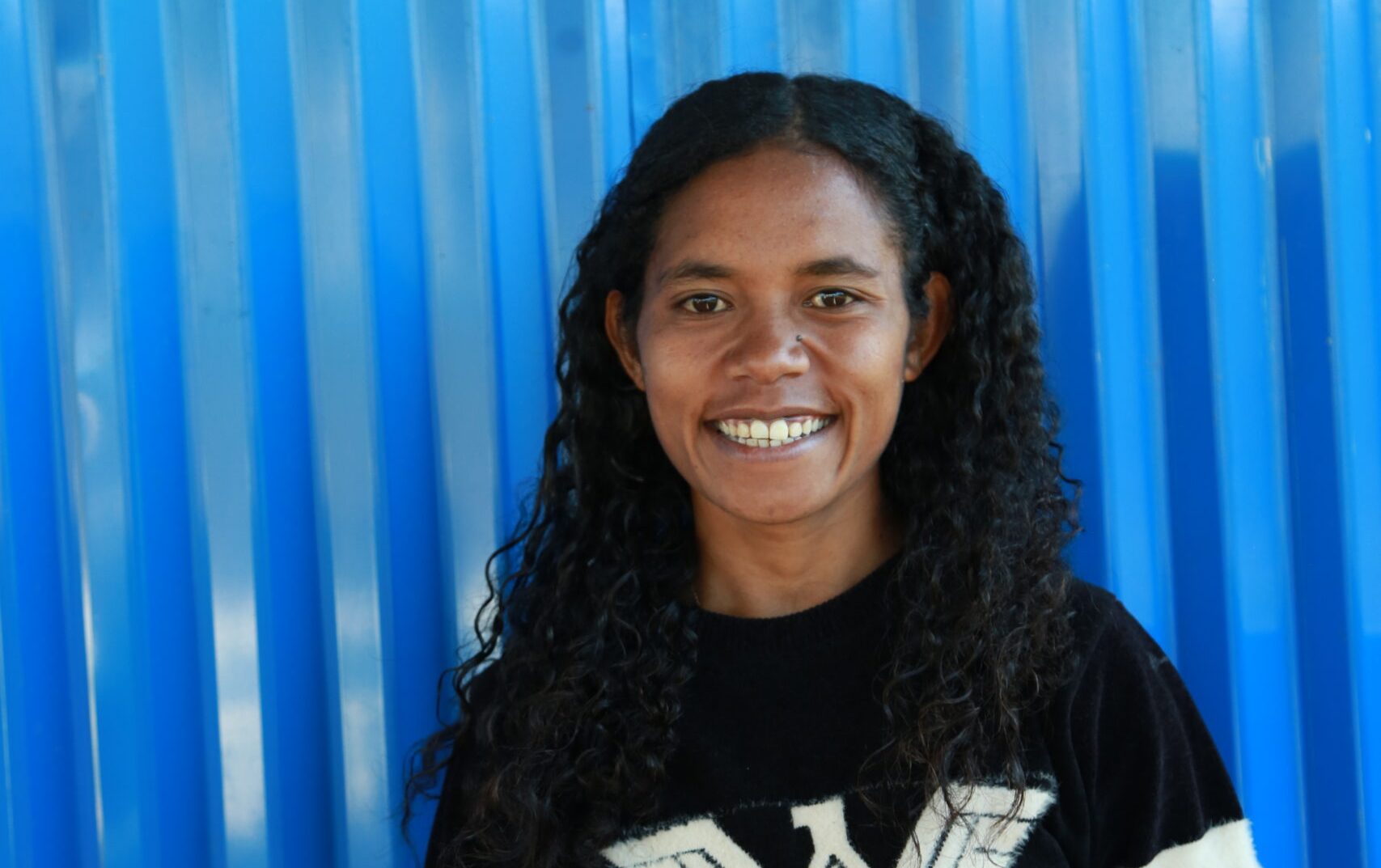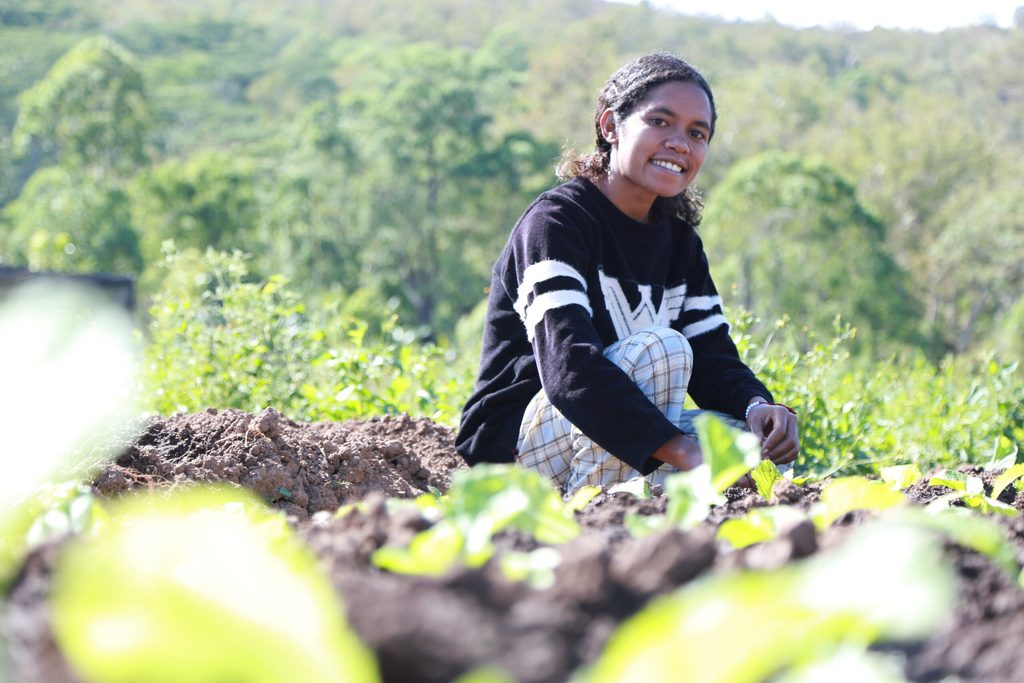From learning regenerative agriculture to community leadership
Abin, a 25-year-old from a rural village in Aileu Municipality of Timor-Leste, overcame economic hardships by developing her knowledge of advanced farming techniques and cooperative financial management, which empowered her to become a young leader in her community and earn money from growing vegetables.

Early struggles
Abin, a 25-year-old from a rural village in Aileu Municipality of Timor-Leste faces economic hardship, like many others in her community. Most of the community in Abin’s village depend on coffee harvesting for sustaining their daily necessities, and spend time doing unproductive activities. This is a big challenge in Abin’s community, but Abin is a young woman who is determined to make a difference for herself and her community.
In 2022, Abin participated in a programme in her village that focused on smart regenerative agriculture, including financial management. She learned advanced techniques such as organic fertiliser production, pesticide use, and efficient cropping systems, including cooperative financial management and savings strategies.
Abin’s path to prosperity
Abin applied this knowledge to her own garden and successfully diversified her income through horticulture. As a result, Abin now relies less on coffee cultivation and has developed better financial management through her involvement in savings and loans as head of a cooperative .
By mastering the safe use of pesticides and producing organic fertilisers, Abin not only improved crop yields, but also reduced reliance on expensive chemical inputs, lowering her family’s production costs and financial burden. This holistic approach has transformed her agricultural livelihood practices.
Abin’s leadership and it’s ripple effect
“Now I am the coordinator of the sub-cooperative in our village,” Abin proudly shares. “With the smart farming and leadership skills I have gained, I am able to grow crops on our farm regularly. I also support and organise other young people in my community, particularly cooperative members to learn more about vegetable farming, alongside coffee cultivation.”
“What I’ve achieved motivates others to follow in my footsteps.”
Abin
“I encourage them to grow vegetables in their garden and also to join the cooperatives in our village.” She explains how her life has changed since moving beyond coffee farming. “I am now able to earn my own income, which helps cover my school expenses and reduces the financial burden on my family.”
Abin’s success and leadership has inspired others in her community to shift away from total reliance on coffee farming. “Seeing what I’ve achieved motivates others to follow in my footsteps,” she says with a smile.

The broader impact of the programme
Abin took part in the youth economic empowerment and smart regenerative agriculture project in Timor-Leste. Through the project, Abin and other community members have accessed training and leadership opportunities.
The aim of smart regenerative agriculture in Timor-Leste is to foster sustainable farming practices that enhance both environmental health and the livelihoods of farmers. This approach supports improved climate resilience, and economic stability, while also encouraging economic diversification. By promoting varied agricultural practices and reducing reliance on a single source, the project helps farmers achieve more sustainable and productive agricultural outcomes.


